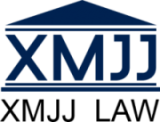Software Piracy – Indian Court Orders for Damages
The current decision from the Delhi High Court within the situation – Microsoft Corporation versus. Yogesh Papat & Anr., relating to “Piracy of Software”, has once more established the resolve from the Indian Judiciary to consider-up Ip matters upfront. IP thievery, which till lately was regarded as a petty white-colored-collar crime because of its economic milieu, finally appears to possess emerge from the dark shadows of archetypal criminal offences, which in fact had prejudiced the mindset of Indian judicial and enforcement agencies (the prevalent notion because the criminal offences tend to be more felonious and aberrant when compared with their IP counterparts, a disagreement that many people most likely will subscribe).

This situation concerns the violation of copyright within the software and particularly, the interpretation of Sec. 51 and 55 from the Indian Copyright Act, 1957. The Claimant, software giant – Microsoft Corporation, the registered proprietor from the trademark MICROSOFT, filed a suit praying to have an order of permanent injunction restraining the defendants, its company directors, and agents from copying, selling, offering for purchase, disbursing, issuing towards the public, counterfeit/unlicensed form of the program programmes, by any means, amounting to violation of the copyright within the stated computer programmes and related manuals as well as their registered trademarks, as well as restraining the defendants from selling and disbursing any product that the plaintiffs’ trademark, or any deceitful variant thereof happen to be applied and additional praying for delivery-up and rendition of accounts of profits.
The defendants not enter appearance after being offered the notice and were began ex-parte. The suit was eventually decreed from the defendants who with no licence as well as in lack of any permission from the manufacturers from the software were installing plaintiffs’ software around the hard disk drive of computers being offered by them.

Generally, once the software programs are offered, purchaser includes a license agreement aiming the terms for allowable user from the software, that is found in a floppy. CD/floppies are paid towards the purchaser and term from the license agreement permits using the CD’s/floppies, according to condition. In our situation, as mentioned earlier, the defendants, with no license were loading the program and in this way were causing financial loss towards the complaintant.
Court Proceedings – A look:
The complaintant brought evidence by means of affidavits creating their strong presence in the area of software and also the possession laptop or computer programmes including various os’s. Evidence through the ‘certificate of registration’ relating towards the registration from the trademark ‘Microsoft’ in the specific complaintant seemed to be submit. Further, direct evidence creating the culpability from the defendants was brought by means of an affidavit of the worker from the complaintant that has obtained a computer in the defendants packed with the pirated software from the complaintant, which was authenticated through the examination report of the technical expert.
The complaintant also filed an affidavit by means of proof of a Chartered Accountant, which introduced on record and demonstrated the time that the defendants were running a business and also the purchase-cost from the computer offered by them, according to which an assumptive quantity of the entire quantity of computers offered through the defendant was computed to look for the believed lack of business towards the complaintant.


